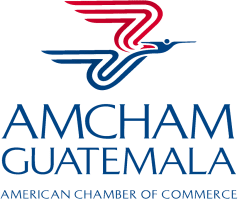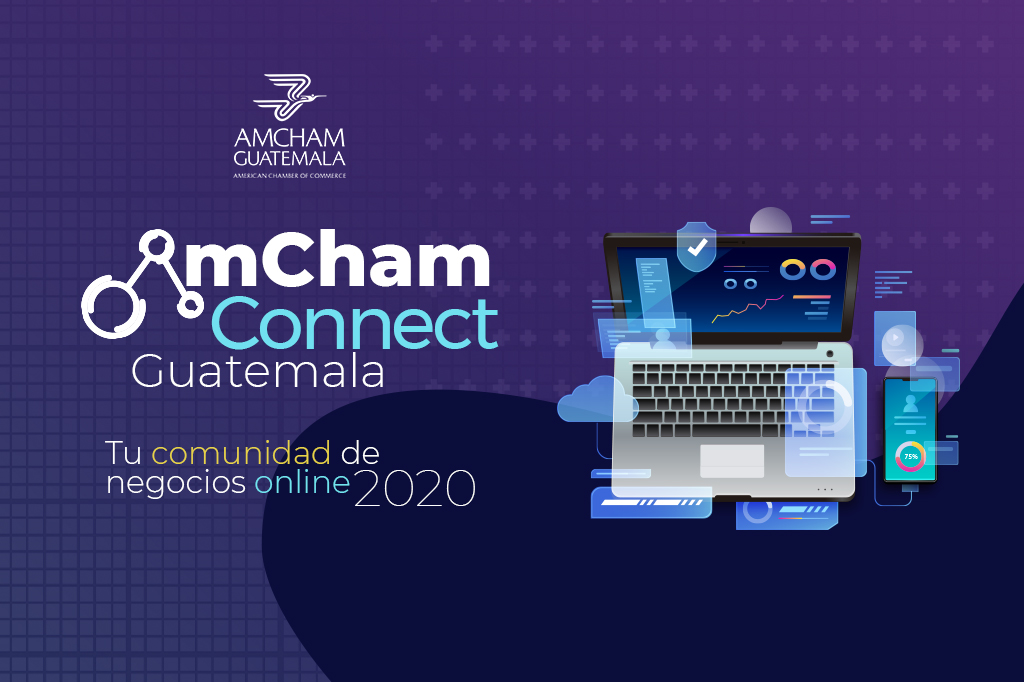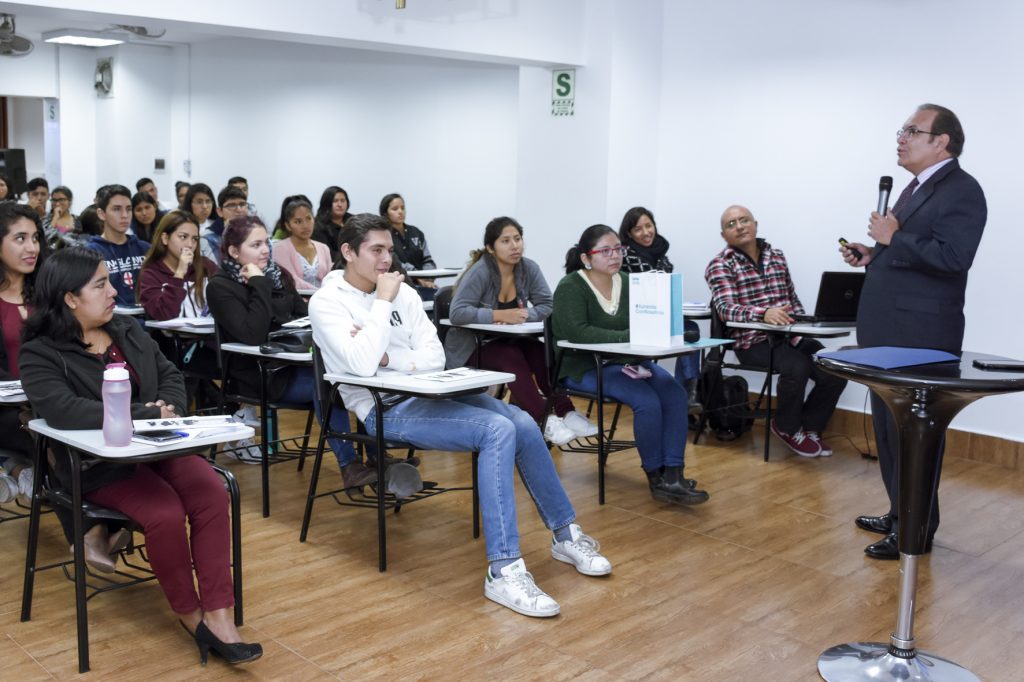Presidency and Company
Guatemala is in an important electoral process, which puts us at a key moment to think about the ones who aspire to be the new president of the country. This thought should assimilate to the thought that a new General Manager of a company must have in a country with many complexities.
It is no secret that most Latin American countries paint a scenario with alarming rates of corruption and citizen insecurity, with low levels of infrastructure, investment and low levels of trust in their public authorities. It is precisely this scenario that the leaders of the national productive sector engage.
For what I propose, what should offer that who wants to be president of the country?
If you are the leader of a company that offers an innovative good and/or service that is well accepted in the market; if you already manage your productivity volumes, but you deal with a number of other negative factors that surround you, what do you do? You can continue working internally and wishing the best to the outside? Or is it involved with the external, to see better results internally?
Internally you can also discuss between continuing with the same procedures and processes, or new trainings and improvements are considered.
If we see it that way, there really is not much difference between what a candidate is questioned about and what you expect from a Board Member and a General Manager of a company. And both can conclude that, just by adapting, training, and innovating, they will be able to overcome and work with the disadvantages that the current environment presents.
After all, the President of the country and a CEO of a multinational are not so different, both must work to break the status quo that seems to have been established indefinitely in our country, so we can dedicate ourselves to the pursuit of economic development, growth and prosperity.
Constitutional or political laws?
Every Guatemalan entrepreneur has the right and duty to actively participate and transparently contribute to build a Rule of Law with clear rules consistent with the law and the Constitution, in an aim to promote a healthy business culture and at the same time, create sources of employment in the country. Similarly, the involvement of the business sector must be reflected in the fight against the smuggling of all kinds of products, from those included in the basic basket, to cigarettes.
In June 2018, the Guatemalan Congress presented a Tobacco Control bill (5461), which aims to make important and necessary decisions for the health of Guatemalans. However, in order not to neglect the country-wide commitments made through international treaties and, in its capacity as a member of important organizations such as the World Trade Organization, AmCham Guatemala, in conjunction with other national chambers, performed a legal, technical and constitutional analysis of the bill. Guatemala is the only Central American country that does not have a Cigarette Pictogram Law. However, bill 5461 is constitutionally deficient in other aspects that set a very negative precedent if a favorable opinion is issued.
Such a favorable opinion, in addition to jeopardizing the country’s compliance of its obligations under International Law, would affect the local market by indirectly promoting more contraband. With this in mind, the national business chambers have joined us and we have presented to Congress legal, technical and constitutional arguments that seek to achieve public health objectives, while proposing changes to the bill to actively contribute and defend legality.
The Health Commission of the Congress of the Republic is currently analyzing a draft opinion of the aforementioned bill. We suggest that the members of Congress analyze this bill from a constitutional and legal perspective to make a difference. We see today how more and more State agencies are discredited; Congress may be the exception by favoring constitutional and technical analyses and contributing to legality and the Rule of Law.
Silicon Valley lessons
“Creativity requires having the courage to part with certainties”
-Erich Fromm
Silicon Valley, known as the capital of the world of start-ups, is the destination to visit AmCham Guatemala soon, on a trip that has the mission of learning to trust instincts. Especially those instincts of the most curious, those who seek innovative solutions to everyday problems, those who travel the extra mile and those who do not get tired of exploring!
Some may wonder why Silicon Valley? Why seek to learn lessons from a perfect ecosystem and perhaps even so far from Guatemalan reality? And it is that technology, rather than widening the daily realities gap, seeks to contract it and bring new opportunities for a fertile land like our region and country.
At AmCham we believe that technological advances and innovation are the way to development. Studies indicate that the countries that are more likely to implement new ways of doing business are finally those that have made significant progress in the competitiveness and development indices. Likewise, it is these countries that have seen the birth of new business models and important tools and services for the communities. Technology allows us to spread stories and ideas that generate global and local impacts.
The mission to Silicon Valley will be the ideal scenario to generate a community that promotes a collective identity, in which cultural values are mixed with new ideas and translates into an opportunity to reinvent businesses, how to do them and the people who They make it possible.
Fight against corruption as an encouragement to competitiveness
Beyond the citizens’ movements of 2015 and the role that the United Nations Commission against Impunity in Guatemala (CICIG, by its Spanish acronym) has played to unravel organized crime and corruption networks, Guatemala has been on a long path that seeks to align itself with the international anti-corruption agenda. It is becoming more and more clear that in order to achieve sustained economic growth, bring investment and be competitive, the key to change lies within institutional strength and public power’s level of social audit. In order to promote this competitive and productive infrastructure, it is relevant and necessary to fight against corruption.
Corruption – the abuse or misuse of power for private purposes – is one of the problems that remain throughout the world, affecting legal certainty and credibility within public institutions. The fact that only a few get benefit through preferences, results in a widespread sense of mistrust affecting a country’s productivity. This mistrust is responsible for keeping institutions weak and unable to function as they should, since the citizen does not see an incentive to demand accountability or participate in fair play; moreover, some find it convenient that the system fails. If we have weak institutions, rules are easier to break, the lack of institutional credibility and disapproval increases and each time we do less to recover them.
This vicious circle of institutional weakness and citizen apathy makes it difficult to achieve sustainable economic growth and development, distorting competition and the free market, since some groups, companies or individuals will be artificially benefited. Moreover, it is a waste of economic and social capital that affects growth and increases inequality and poverty, feeding and reproducing mistrust. As Shleifer and Vishny have suggested, corruption takes the form of a tax on economic activity that becomes even more expensive (and of course harmful) than legal taxes, adding an additional financial cost of approximately 10%.
The most recent Global Competitiveness Index (2017-2018) published by the WEF measures the national competitiveness of 137 economies; that is a group of institutions, policies and aspects that determine the level of productivity. The social infrastructure which includes education, health and political institutions (including fiscal and monetary policies), establish the context in which productive activity takes place. In the last five years, Guatemala has not changed much its rating. It currently ranks 84th, with an index of 4.1, being 7 the highest rank and 1 the lowest . Like most Latin American countries, Guatemala has low productivity, high informality and low export diversification, as well as insufficient growth to create jobs or finance which is a growing demand for quality public goods. Therefore, it is necessary to strengthen their capacity to meet changing international conditions and seek new ways of sustainable growth through a competitive agenda to encourage entrepreneurship and allow the rise of new innovative businesses.
Currently, standard international compliance rules are developing and being applied that force companies to pursue anti-corruption policies in order to remain competitive, strengthen their reputation and protect the interests of their shareholders. Aware of the economic and social impacts of this disruptive behavior, international organizations such as the United Nations Office on Drugs and Crime (UNODC), the Organization for Economic Cooperation and Development (OECD) and WEF continue to promote policies to prevent, detect and control corruption in countries, in order to facilitate their economic development and growth, rather than end up isolating themselves from the new way of exchanging and investing.
The current consensus is now that economic growth, needs to focus more on human well-being, with coordinated action by the state, the business community and civil society. These actors contribute to all aspects of competitiveness at the same time, in order to achieve long-term results, achieving economic policy spaces where all sectors are able to win. The distortions caused by corruption can be effectively addressed through public-private partnerships focusing on strengthening political institutions and providing a counterweight through accountability, performance evaluations and encouragement of pending reforms. Guatemala is, in fact, already engaged in this process of change towards a different way of doing things.
Fight against corruption increases willingness to do business and invest, not the other way around. Economic growth and productivity based on appropriate social and institutional infrastructure improves competitiveness in due time, because legal certainty and social trust is recovered, establishing a new order of incentives that make up a fair play. Under this new scenario, competitiveness contributes towards a wider target of human-focused economic growth, enabling the creation and distribution of resources invested in education, health, security and higher per capita incomes.
Guatemala Safe from Trade Wars
Autor: Michael McDonald, Business Reporter for Central America & Caribbean, Bloomberg
The United States-Guatemalan trade relationship is healthy even as President Donald Trump has ramped up trade wars with major partners like Mexico and China.
Guatemala sends roughly 40% of its exports to the United States, mainly bananas, coffee and textiles, making it the top destination for Guatemalan goods. The U.S. imported $4.2 billion worth of Guatemalan products in 2018, up 5% from the previous year. Guatemala, in turn, imports a large share of its oil from the U.S. and has benefited from lower prices in recent years.
The CAFTA-DR trade agreement has not drawn the ire of Trump like similar agreements such as NAFTA. This has kept trade barriers low and allowed goods to flow freely between the two nations without interruption.
The U.S.-China trade war may actually represent an opportunity for Guatemala. China exports mainly manufactured goods to the U.S. and Guatemala could attract some of this manufacturing, especially in the textile industry where it already has the infrastructure and know-how, as relations between China and the U.S. remain tense.
The top threat to Guatemala’s exports is currently a spate of low commodity prices. Coffee prices are near 13-year lows, driving many farmers into debt and out of business. Sugar prices have also declined in recent years and are hovering around their lowest since 2015.
It would be unlikely for the U.S. to adapt a major trade policy shift toward Central America and commercial relations should remain positive in the months to come.
Economic Perspective Guatemala 2018
Guatemala has been showing stable growth rates since 2010 thanks to its prudent macro-economic performance. The estimated growth rate for 2018 is 2.8% and for 2019, the Central Bank of Guatemala’s projections place it at between 3.1 and 4.1%. However, just like other countries of the region, Guatemala continues to phase major challenges due to legal uncertainty, corruption and crime, which harm foreign investment and lead to high economic costs.
On the other hand, Guatemala continues to experience significant progress in areas such as road infrastructure, education, and poverty reduction, as well as in its updates to the Trade Code, which will promote more private and public investment, as well as more human capital development.
For November 2018, Moody’s and Fitch maintained Ba1 and BB ratings respectively, with stable perspectives. This reflects confidence in the country, and no perception of deterioration, which promotes foreign investment. Like any process of continuous improvement, the country relies on indicators such as global competitiveness index (ranked 84), infrastructure (6 out of 10 points), unemployment, and poverty to improve its national competitiveness and productivity and thus earn a higher rating that leads access to more foreign investment.
In recent years, interest rates have shown a moderate behavior, which is indicative of a cautious monetary policy. According to data from the IMF, in September 2018, the inflation rate was 4.55%, which is a monthly rate of 0.60%, and an accumulated 2.13% inflation rate. The inflation rate projected for 2019 is between 3.6 and 4.5.
CPI and variations
| Year | Month | Index | Monthly | Accumulated | Inflation rate |
| 2017 | September | 130.93 | -0.55 | 3.23 | 4.36 |
| 2017 | October | 131.64 | 0.54 | 3.79 | 4.20 |
| 2017 | November | 132.77 | 0.86 | 4.68 | 4.69 |
| 2017 | December | 134.03 | 0.95 | 5.68 | 5.68 |
| 2018 | January | 133.50 | -0.40 | -0.40 | 4.71 |
| 2018 | February | 133.23 | -0.20 | -0.60 | 4.15 |
| 2018 | March | 133.54 | 0.23 | -0.37 | 4.14 |
| 2018 | April | 133.60 | .0.04 | -0.32 | 3.92 |
| 2018 | May | 134.23 | 0.47 | 0.15 | 4.09 |
| 2018 | June | 135.00 | 0.57 | 0.72 | 3.79 |
| 2018 | July | 135.48 | 0.36 | 1.08 | 2.61 |
| 2018 | August | 136.08 | 0.44 | 1.53 | 3.36 |
| 2018 | September | 136.89 | 0.60 | 2.13 | 4.55 |
Source: Produced by authors with information from the National Statistics Institute 2018.
Family remittances made to Guatemala grew by 12.6% between January and October 2018 from 2017. It is important to underscore that foreign currency from family remittances is expected to contribute more than 11% to the GDP.
The oil price drop and likely economic deceleration in the United states resulting from its trade war with China could impact exports in 2018. However, traditional exports remained stable or grew when comparing January 2017 with January 2018 in commodities such as: bananas, sugar, coffee and cardamom, with rates of 53.1, 83.4, 45.7 and 48.2, respectively (in millions of US Dollars) according to Bank of Guatemala data.
For 2018, the preliminary CIF imports for September will close with a total amount of USD 14,577.2 million, and they are expected to exceed the 2017 total of USD 18,389.8 million. The trend in interannual accumulated variation rates for imports is estimated at between 6.5 and 9.5 by the end of 2018, and at 6.0 and 9.0 for 2019.
The flow of foreign direct investment in 2018 will be 1,175.3 million U.S. Dollars. This flow increased only slightly by comparison with 2017 because of the limited improvement in legal certainty and due to political instability, both of which factors have had a negative impact on potential investment decisions.
Guatemala’s indicators progress at a slow growth rate; investment through public spending particularly in social factors and infrastructure is expected to increase. With sufficient resources to support economic activities, and with significant time reductions in border crossings and Customs procedures, this slow growth pace could accelerate.
Globase 2019, an opportunity to grow for small and medium-size enterprises in Quetzaltenango
Globase is the program created between the University of Indiana and AmCham Guatemala where senior year MBA students of the Kelley School of Business provide free-of-charge consulting to small and medium-size enterprises on topics such as marketing, processes, administration, finances and other.
The final reports of the consulting service provided to 5 companies in Quetzaltenango were submitted on March 8. Solutions were offered and challenges were addressed, such as process optimization, the creation of standard feedback systems, the standardization of hiring processes, the definition of added values before highly competitive markets, among others.
The beneficiaries, who received free consultation through 11 virtual weeks and 1 face-to-face week, were: Copeoro R.L., a non-profit organization that provides savings and loan services; Tacorazon, a socially-responsible fast food chain whose goal is to bring prosperity to small producers selling organic food to their consumers; ISSE, a logistics operator that represents DHL in the Quetzaltenango market; Caras Alegres Foundation, an NGO that focuses on providing support to Las Rosas community offering extracurricular programs to children; and Manos de Salvación, an NGO dedicated to providing health and safety to women, the elderly and children.
We invite all companies in Quetzaltenango to be aware of the launch of Globase 2019 – 2020 and benefit from this project that seeks to empower this urban hub to become a source of employment in the second most important city in the country.







